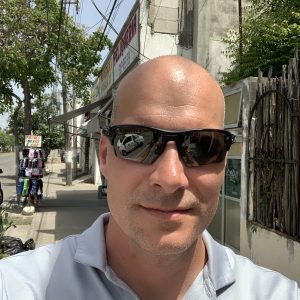Exposure to nature and exercising outdoors can contribute immensely to improving a person’s mental health. Through utilizing outdoor recreation in our treatment program, our teens experience the therapeutic effect of the great outdoors in a way that few will ever experience.
Turning Winds uses the great outdoors of Montana to combine adventure therapy, experiential education, and psycho-educational therapy. Experiential learning is based on the assumption that lasting change can occur when people are placed outside their familiar comfort environment and immersed in new and thus somewhat challenging situations.
The latest tool in the Turning Winds outdoors program is a brand-new pontoon boat. Its maiden outing was in July and the immediate client feedback was very promising. “We had some pretty cool feedback from the kids,” says chief operations officer Carl Baisden. “Many said it was their favorite activity since they had arrived at Turning Winds.
The activities component is central to the therapeutic approach at Turning Winds. “We believe in an emphasis on therapy, of course, but the activities are also very important,” says Baisden. “We buy state-of-the-art equipment—we just got the pontoon boat and invested in brand-new mountain bikes. Sometimes, when I talk to people about our activities, they say ‘Oh, that’s fun!’ and it feels a little tragic when it’s watered down to ‘just fun.’ If it was just that we wouldn’t invest that heavily into these kinds of activities. What we’re trying to achieve is not just kids enjoying life—we’re trying to get them to genuinely fall in love with living again.”
It’s the kind of approach to life that many of the kids lost due to anxiety, depression, and substance use. Several of the kids on the first outing of the new pontoon boat actually have families with boats but it’s been years since they have been on it.
“All the activities they loved when they were younger ended up on the back burner once they started hanging out with friends and engaging in unhealthy activities such as substance misuse,” says Baisden. “So, we want to reintroduce them to life, not just have fun.”
Even out on the water, therapy doesn’t stop. “We had a little group session while we were out on the lake,” explains Baisden. “I asked ‘If you were home now on a hot summer day, what would you be doing?’ The answers were troubling. Some said they would be on their own and others said, they’d hang out with their friends and be up to no good.”
“At Turning Winds, we believe that there are few things more worthy of investing in than good equipment for high-value activities and experiences for these kids and then building a clinical component into these activities that make the kids not only have fun but make them realize what they have given up and then talk about it and process it,” says Baisden. “This is so much more than having a good time, it’s an integral part of our treatment process.”
Experiential learning at Turning Winds is not limited to Montana. Twice a year, Turning Winds organizes international service trips for our clients. As with the pontoon boat, it’s not just a fun tourist excursion but an uplifting therapeutic experience since the trip is focused on helping other people and experiencing a culture different from our own.
At Turning Winds, it’s the people who make the difference. Over the course of two decades, we’ve built a team of some of the world’s finest academic and therapeutic professionals, all of whom share the same goal: to help teens re-engage meaningfully with their lives, families, and their futures.
Contact us online for more information, or call us at 800-845-1380. If your call isn’t answered personally, one of us will get back to you as soon as possible.









